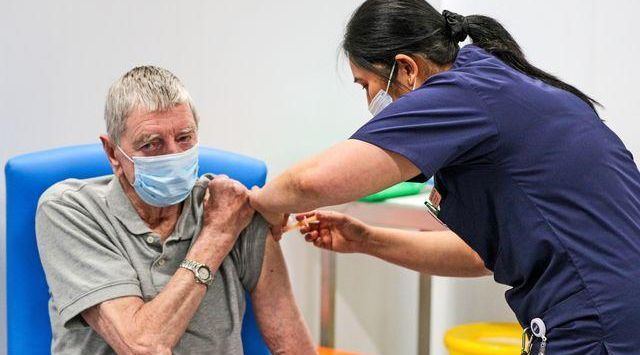A new global study has revealed that surgical patients who recently had COVID-19 are more likely to develop fatal blood clots after surgery. The global study saw the participation of 12 UAE hospitals, including:
· Mediclinic Alnour Hospital and Sheikh Shakhbout Medical City in Abu Dhabi
· Al Jalila Children’s Speciality Hospital
· Burjeel Hospital for Advanced Surgery
· Dubai Hospital
· Latifa Women and Children Hospital
· Medcare Orthopaedic and Spine
· Mediclinic City Hospital Dubai
· Mediclinic Parkview Hospital, Mediclinic
· Wellcare Hospital
· Neurospinal Hospital
· Rashid Hospital in Dubai
· Al-Qassimi Hospital in Sharjah
During the study, researchers found that patients diagnosed with previous or ongoing COVID-19 infection, are more likely to develop venous thromboembolism (VTE) than those without any previous COVID-19 illness. As per reports, these blood clots found in veins are the number one preventable cause of death among hospitalised patients.
Speaking about the study, Dr Hayder Alsaadi, adjunctive clinical associated professor at Dubai Medical University and consultant orthopaedic, trauma Surgeon at Rashid Hospital, highlighted that the GCC region played a crucial role in the global study. He noted the study helped researchers in understanding the impact of COVID-19 and develop necessary strategies to fight the pandemic.
“As one of the countries spearheading the global efforts against COVID-19, whether through vaccine distribution or mask production, we are proud to be playing a central part in clinical research. We hope these new findings will strengthen our collective resolve and contribute to the global mission,” Dr Alsaadi added.
Along with the data collected from public and private UAE hospitals, the study also involved information from 26 hospitals in Saudi Arabia, four in Bahrain, seven in Kuwait, three in Qatar and two in Oman.
VTE has been associated with 30-day mortality increasing the risk of death by five times within 30 days after surgery in patients who develop it. Previous researches have shown that patients hospitalised with COVID-19 have shown a high risk of VTE, ranging between 9-26 percent. This can happen despite using preventative drugs. The risk can increase upto 31 percent among patients in critical care settings. The new global study has confirmed an increased risk among patients hospitalised for surgery as well.
The study is led by experts at the University of Birmingham, surgeons and anaesthetists from around the world who worked together as part of the National Institute for Health Research-funded COVIDSurg Collaborative. It analysed the data from 128,013 adult patients aged 18 and above from 1,630 hospitals across 115 countries. These patients are either undergoing elective or emergency surgery from any speciality. The findings have been published in the medical journal, Anaesthesia.
The research team is also urging surgeons across the world to stay aware for cases of VTE and to follow routine measures to ensure the prevention of clots, including lowering the threshold for diagnostic testing among patients showing signs of VTE. Routine postoperative care of surgical patients should also include intervening to minimise VTE risk. Participating surgeons have underlined that further research is needed into the phenomenon to define necessary protocols to prevent VTE and provide appropriate treatment to surgical patients with COVID-19 history.
“People undergoing surgery are already at higher risk of VTE than the general public, but we discovered that a current or recent (COVID-19) infection was associated with greater risk of postoperative VTE. Most surgical patients have risk factors for VTE, including immobility, surgical wounds and systematic inflammation; the addition of (COVID-19) infection may further increase this risk,” said study co-author Elizabeth Li (clinical research fellow at the University of Birmingham).
Surgical patients have undergone an operative procedure that produced an artificial wound, thereby, increasing the risk of bleeding. It can further result in a series of inflammatory responses that can alter haemodynamics and coagulation.
Aneel Bhangu, co-author from the University of Birmingham, stated that the impact of surgery on coagulation and early reports of increased risk of VTE in COVID-19 patients indicates that there is a need to define VTE risk specifically in patients undergoing surgery. It will further help clinicians and policymakers worldwide in constructing future systems of identification and minimising VTE risk in surgical patients with active or prior [COVID-19] infection.
"Routine postoperative care of surgical patients should include interventions to reduce VTE risk in general, but further research is needed to define the best protocols for VTE prevention and treatment in this setting,” Aneel Bhangu added.
 AR
AR UR
UR
